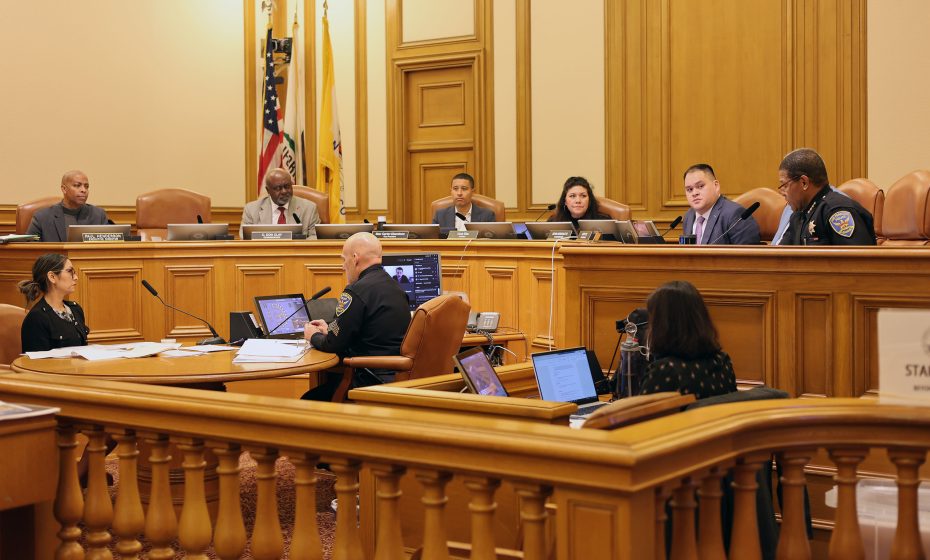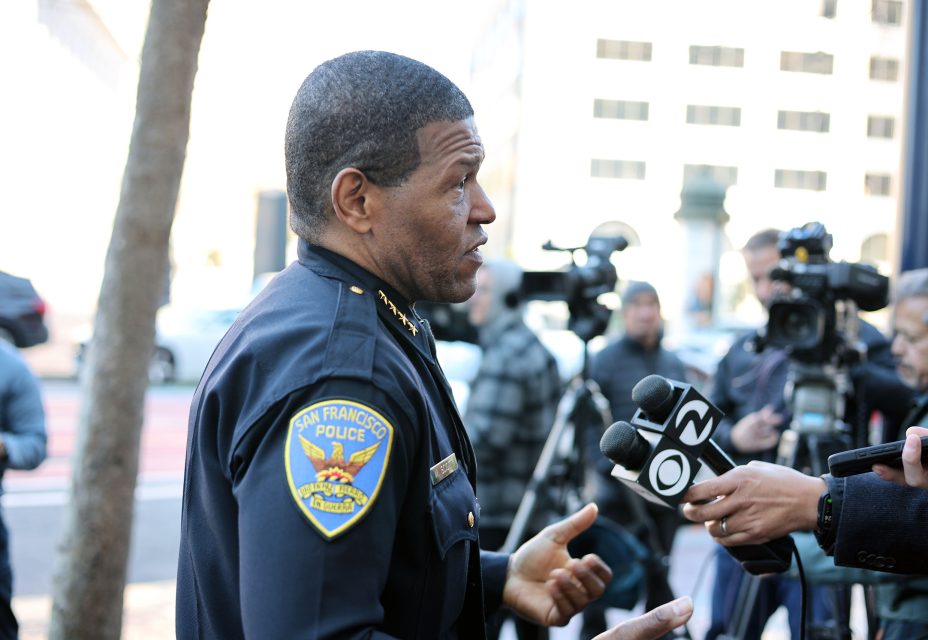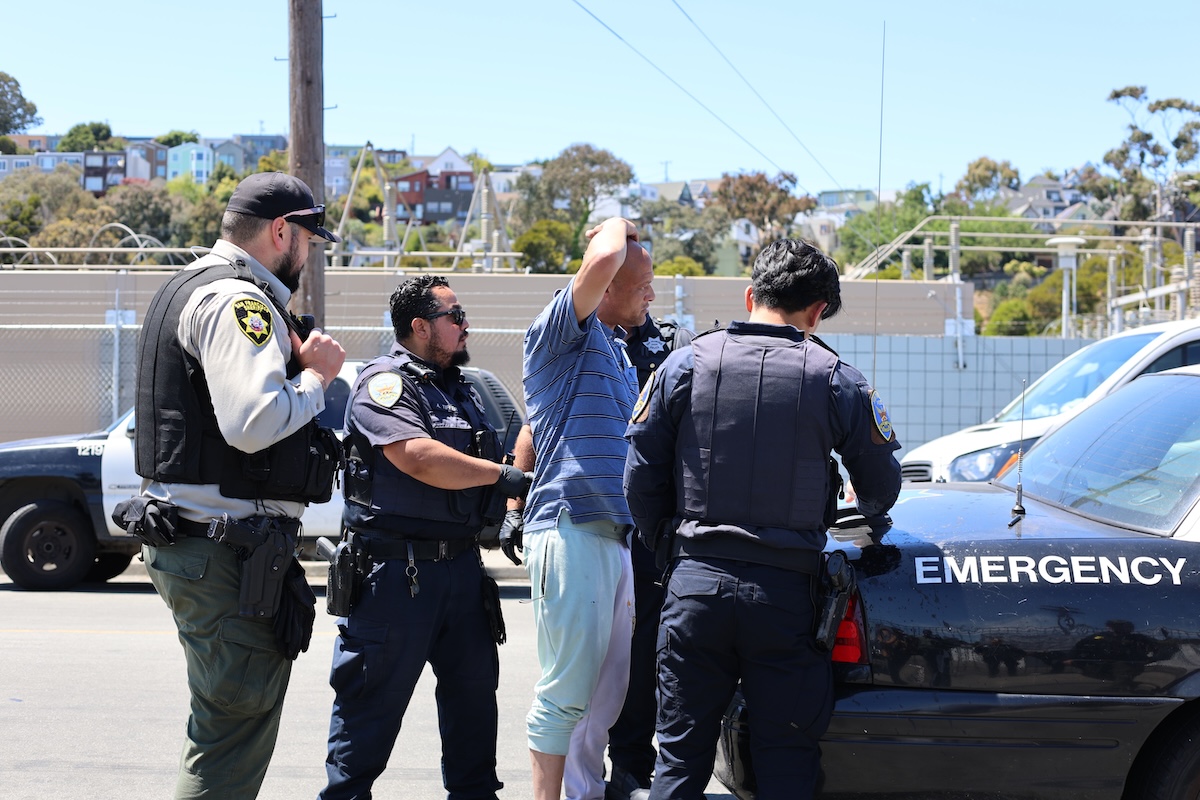The San Francisco Police Commission voted unanimously on Wednesday evening to update the protocols for police officers who contact, detain, or arrest people with mental health disorders.
Namely, the new policy expands the definition of an individual being a danger to themselves or others to include those with severe substance use disorders. It also explicitly promotes diversion to non-law enforcement agencies, encouraging police to “limit unnecessary confrontation” with people suffering from mental health crises.
“I really appreciate the effort to de-stigmatize people with mental health disorders and acknowledging that there are challenges with co-occurring disorders, [with] people who are also using substances to self-medicate,” said commissioner Jesus Yañez. “It gives us a roadmap and templates and examples for how officers can convey information in a respectful and professional manner.”
The new policy “aims to decriminalize mental health crises, prioritize alternative responses, and integrate non-law enforcement resources,” said Lieutenant Donald Anderson, who presented proposed updates to the commission.
The department has been working to update its mental health policy adopted in 1994 for “just over two years,” Anderson added.
Now, officers are instructed to “utilize strategic communication, crisis intervention, and de-escalation strategies” while addressing people with mental health disorders “before resorting to force.” Between 2005 and 2013, over half of people killed by police suffered from a mental illness, a 2014 review by KQED found.
Unless an individual is violent or presents a public safety risk, officers should divert these cases to non-law enforcement agencies like the Fire Department or Department of Public Health, Anderson said. The policy also directs officers to offer resources and recommend individuals contact a mental health professional.
 The police commission meeting in City Hall on Jan. 15, 2025. Photo by Abigail Van Neely.
The police commission meeting in City Hall on Jan. 15, 2025. Photo by Abigail Van Neely. Police Chief William Scott on Jan. 15, 2025. Photo by Abigail Van Neely.
Police Chief William Scott on Jan. 15, 2025. Photo by Abigail Van Neely.
At the meeting, commissioner Larry Yee asked if, under the new guidelines, there would be a way to book or fingerprint people without identification who are apprehended by the police.
“If it’s just a mental health hold and we cannot identify them, that wouldn’t be the most appropriate process, only because there’s no crime that we’re addressing,” Anderson replied.
If a person is deemed a danger as a result of a mental health disorder, however, police may detain and transport them by ambulance to a hospital for psychiatric evaluation.
If they are arrested for committing a criminal offense, the order continues, they should be taken to Psychiatric Emergency Services at San Francisco General Hospital for evaluation prior to booking.
Officers are instructed to conduct their own evaluations if a clinician or other city agency representative is not on the scene. The language in the order, following the commission meeting, will be changed from “psychiatric evaluation” to “mental health evaluation,” to acknowledge that police officers are ”not equipped” to provide formal clinical opinions or administer medication.
While police may confiscate weapons from those detained, they are required to preserve the property of anyone taken into custody for evaluation.
The department, the order adds, “will attempt to seek out diversion programs, resources, and alternatives to arrest” for people with mental health disorders when appropriate.
